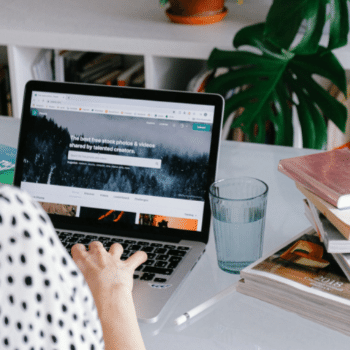Working from home? Be careful not to mix personal and professional services!
 Remote work has become something extremely common for most Brazilian workers. In recent months, many companies have realized the benefits of this work format, including lower operating costs and greater flexibility for employees, which has ended up optimizing their productivity. But, of course, we also need to be aware of the new cybersecurity risks that this scenario brings.
Remote work has become something extremely common for most Brazilian workers. In recent months, many companies have realized the benefits of this work format, including lower operating costs and greater flexibility for employees, which has ended up optimizing their productivity. But, of course, we also need to be aware of the new cybersecurity risks that this scenario brings.
A very common problem is an employee's difficulty in properly delimiting the spaces for personal and professional information. Let's say that your company uses a specific solution to store files in the cloud. It is important to understand that this service is used exclusively for corporate documents and data, and should not be used for personal purposes. The same is true for any software-as-a-service (or SaaS).
Conversely, corporate information — which possibly includes sensitive and sensitive content – must not be stored on storage services and online platforms other than those accredited by the IT team. If this is done, confidential data will be given a lower level of security, as it will not be protected by the same layers of protection offered by the company's “official” solution.
Work equipment is for work!
Other precautions need to be highlighted — and the correct use of equipment is one. In most cases, companies provide desktops or laptops to employees, and this equipment comes with security solutions which are properly configured to avoid problems. It is crucial that the professional understands that the machine should only be used to do their work, and not to play games or be used for other types of entertainment.
Likewise, personal files should be stored exclusively on your personal machine, and work-related information should only be stored on the corporate device. No accessing inappropriate websites, checking your social networks, or watching videos on YouTube. Let's imagine we're at the office, and there's a firewall preventing access to such pages. If you adopt this mindset when working from home, you protect yourself and your company's digital assets!
Email precautions
Finally, we could not fail to mention the importance of safeguarding the integrity of your corporate email. Do not use it for registrations and subscriptions to newsletters, as this increases the “online presence” of the address, which can end up falling victim to spam and, consequently, phishing lists. Resist the temptation to have it all in one place, and learn to keep your personal and professional lives properly separated. This way, you'll protect both your own and the company's data!
